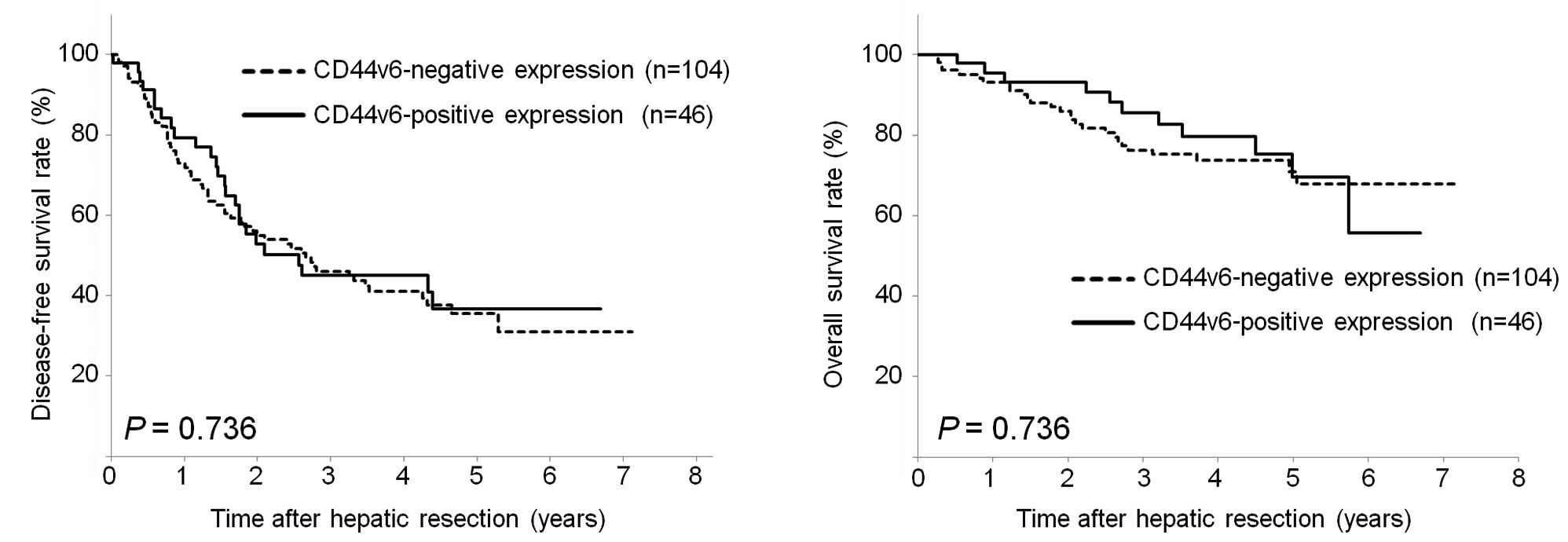Spandidos Publications style
Mima K, Okabe H, Ishimoto T, Hayashi H, Nakagawa S, Kuroki H, Miyake K, Takamori H, Beppu T, Baba H, Baba H, et al: The expression levels of CD44v6 are correlated with the invasiveness of hepatocellular carcinoma in vitro, but do not appear to be clinically significant. Oncol Lett 3: 1047-1051, 2012.
APA
Mima, K., Okabe, H., Ishimoto, T., Hayashi, H., Nakagawa, S., Kuroki, H. ... Baba, H. (2012). The expression levels of CD44v6 are correlated with the invasiveness of hepatocellular carcinoma in vitro, but do not appear to be clinically significant. Oncology Letters, 3, 1047-1051. https://doi.org/10.3892/ol.2012.611
MLA
Mima, K., Okabe, H., Ishimoto, T., Hayashi, H., Nakagawa, S., Kuroki, H., Miyake, K., Takamori, H., Beppu, T., Baba, H."The expression levels of CD44v6 are correlated with the invasiveness of hepatocellular carcinoma in vitro, but do not appear to be clinically significant". Oncology Letters 3.5 (2012): 1047-1051.
Chicago
Mima, K., Okabe, H., Ishimoto, T., Hayashi, H., Nakagawa, S., Kuroki, H., Miyake, K., Takamori, H., Beppu, T., Baba, H."The expression levels of CD44v6 are correlated with the invasiveness of hepatocellular carcinoma in vitro, but do not appear to be clinically significant". Oncology Letters 3, no. 5 (2012): 1047-1051. https://doi.org/10.3892/ol.2012.611

















